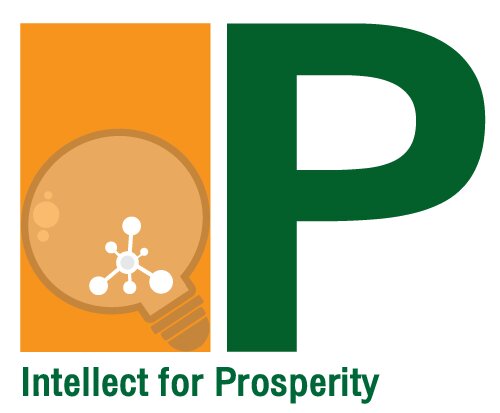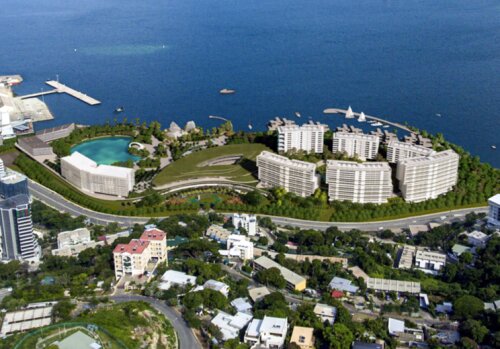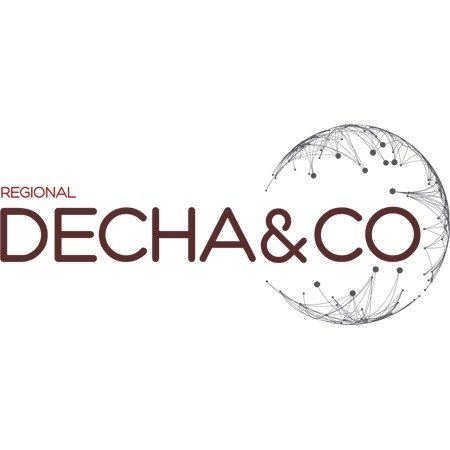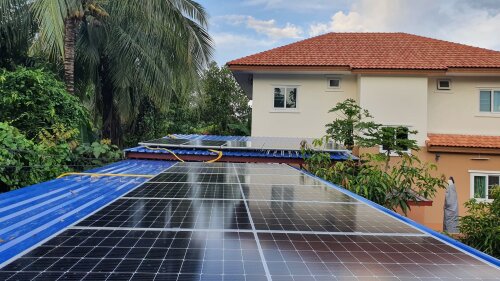ทนายความ ความร่วมมือระหว่างภาครัฐและภาคเอกชน (PPP) ที่ดีที่สุดใน ประเทศไทย
แบ่งปันความต้องการของคุณกับเรา รับการติดต่อจากสำนักงานกฎหมาย
ฟรี ใช้เวลา 2 นาที
หรือปรับแต่งการค้นหาของคุณโดยเลือกเมือง:
รายชื่อทนายความที่ดีที่สุดใน ประเทศไทย
คู่มือกฎหมายเขียนโดย SIAM LEGAL INTERNATIONAL:
- Defamation Laws in Thailand: Criminal Charges and Civil Suits
- The State of Thailand’s Long-Term Resident (LTR) Visa Program in 2025
- The Penalties Of Not Filing Your Income Tax Return As A Foreigner In Thailand
1. เกี่ยวกับกฎหมายความร่วมมือระหว่างภาครัฐและภาคเอกชน (PPP) ในประเทศไทย
PPP คือกรอบความร่วมมือระหว่างรัฐและเอกชนเพื่อออกแบบ สร้าง และบำรุงรักษาโครงสร้างพื้นฐานหรือบริการสาธารณะ โดยมักใช้สัญญาในระยะยาวเพื่อจ่ายค่าบริการหรือค่าชดเชยให้เอกชนตามผลการดำเนินงาน
กรอบกฎหมาย PPP ในไทยมุ่งเน้นการแบ่งปันความเสี่ยง งบประมาณรัฐที่จำกัด และประกันคุณภาพบริการ ผ่านสัญญาเช่าซื้อ สัญญาการให้บริการ หรือสัญญาที่รวมองค์ประกอบการดำเนินงานระยะยาว
อ้างอิงจากหน่วยงานรัฐบาลไทยระบุว่าระยะเวลาสัญญา PPP มักอยู่ในช่วง 15-30 ปี ขึ้นกับโครงการและโครงสร้างการชำระเงิน
โดยระเบียบและกรอบการกำกับดูแลมีหลายส่วน เช่น การประมูล การกำกับดูแลสัญญา และการติดตามผล กระบวนการนี้ต้องการความชัดเจนด้านการเงิน ภาษี และข้อกำหนดด้านสิ่งแวดล้อม
2. ทำไมคุณอาจต้องการทนายความ
ฉันจะช่วยคุณตรวจสอบและเตรียมสัญญา PPP ตั้งแต่ต้น เพื่อให้สอดคล้องกับกฎหมาย และคุ้มครองสิทธิของคุณในระยะยาว
กรณีที่ 1: นักลงทุนเอกชนยื่นข้อเสนอ PPP สำหรับโครงการทางด่วนในกรุงเทพฯ และต้องการตรวจสอบรายละเอียดเงื่อนไขชำระเงินและเงื่อนไขการเปลี่ยนแปลงสัญญา
ทนายความจะช่วยร่างและตรวจสอบการกระจายความเสี่ยง ความรับผิดชอบ และเงื่อนไขการชำระเงินของรัฐ เพื่อป้องกันข้อพิพาทภายหลัง
กรณีที่ 2: หน่วยงานรัฐต้องทบทวนสัญญา PPP เพื่อตอบสนองการเปลี่ยนแปลงงบประมาณหรือข้อกำหนดด้านพลังงานและสิ่งแวดล้อม
ทนายความจะช่วยปรับแก้ข้อสัญญา เพิ่มเงื่อนไนรับผิดชอบ และตรวจสอบการคงไว้ซึ่งประโยชน์สาธารณะ
กรณีที่ 3: เกิดข้อพิพาทระหว่างรัฐกับเอกชนในเรื่องค่าชดเชยหรือคุณภาพบริการ
ทนายความสามารถให้คำแนะนำด้านทางเลือกระงับข้อพิพาท เช่น การไกล่เกลี่ย การอนุญาโต และการบังคับคดีตามสัญญา PPP
กรณีที่ 4: กฎหมายภาษีและประเด็นการเงินที่เกี่ยวกับโครงการ PPP เปลี่ยนแปลง
ทนายความจะช่วยคัดกรองข้อกำหนดภาษี การหัก ณ ที่จ่าย และสิทธิประโยชน์ทางการเงิน เพื่อคงความคุ้มค่าโครงการ
กรณีที่ 5: ต้องสอดคล้องกับข้อกำหนดด้านสิ่งแวดล้อมและความรับผิดชอบต่อสังคม
ทนายความจะช่วยประเมิน EIA และดูแลความสอดคล้องกับระเบียบด้านสิ่งแวดล้อม เพื่อให้โครงการผ่านกระบวนการอนุมัติ
3. ภาพรวมกฎหมายท้องถิ่น
กฎหมายที่เกี่ยวข้องกับ PPP ในไทยมีหลายส่วน โดยมีกรอบหลักที่กำกับการออกแบบและดำเนินการโครงการสาธารณะร่วมกับเอกชน
กฎหมายหลักที่ควรทราบ ได้แก่ พระราชบัญญัติความร่วมมือระหว่างรัฐกับเอกชน พ.ศ. 2556 ซึ่งเป็นกรอบสำคัญสำหรับโครงการ PPP ในประเทศไทย
กฎหมายที่เกี่ยวข้องกับการจัดซื้อจัดจ้างภาครัฐ คือ พระราชบัญญัติการจัดซื้อจัดจ้างภาครัฐ พ.ศ. 2560 ซึ่งให้กรอบการจัดซื้อจัดจ้างและการประมูลที่โปร่งใส
ทั้งนี้ การดำเนินการ PPP ต้องพิจารณากฎหมายอื่น ๆ ที่เกี่ยวข้อง เช่น กฎหมายทรัพยากรธรรมชาติ การประเมินผลกระทบสิ่งแวดล้อม และกฎหมายด้านภาษี
4. คำถามที่พบบ่อย
อะไรคือความหมายของ PPP ในประเทศไทย?
PPP คือกรอบความร่วมมือรัฐกับเอกชนเพื่อออกแบบ สร้าง และดำเนินการโครงสร้างพื้นฐานหรือบริการสาธารณะ โดยใช้สัญญาระยะยาว ผู้ดำเนินโครงการรับผิดชอบการลงทุน บำรุงรักษา และส่งมอบบริการตามมาตรฐานที่กำหนด
อย่างไร กระบวนการประมูล PPP จึงเริ่มต้นได้?
เริ่มจากเงื่อนไขพื้นฐานที่รัฐกำหนดให้ผู้สนใจยื่นข้อเสนอ จากนั้นมีขั้นตอนเชิญชวน ประกาศการประมูล ตรวจสอบคุณสมบัติ และเสนอเงื่อนไขสัญญา โดยสภาวะการเงินและภาษีมีบทบาทสำคัญ
เมื่อไหร่ สัญญา PPP จะหมดอายุ?
โดยทั่วไปสัญญา PPP cóระยะยาวกว่า 15-30 ปี ขึ้นกับโครงการและโครงสร้างการชำระเงิน เมื่อครบระยะสัญญาจะมีการต่ออายุหรือยุติโครงการตามข้อกำหนดในสัญญา
ที่ไหน ฉันควรเริ่มปรึกษาทนายก่อนยื่นข้อเสนอ PPP หรือหลังได้ข้อเสนอ?
ควรปรึกษาทนายตั้งแต่ขั้นตอนการออกแบบเงื่อนไขสัญญาและการยื่นข้อเสนอ เพื่อตรวจสอบความสอดคล้องกับกฎหมาย และลดความเสี่ยงในการประมูล
ทำไมถึงต้องมีทนายความในการเจรจาสัญญา PPP?
เพราะสัญญา PPP มีข้อกำหนดเรื่องการชำระเงิน ความรับผิดชอบ ความเสี่ยง และข้อกำหนดทางภาษีที่ซับซ้อน ทนายจะช่วยร่าง ปรับเปลี่ยน และตรวจสอบเงื่อนไขให้ชัดเจน
สามารถทบทวนสัญญา PPP เพื่อปรับให้ยืดหยุ่นได้หรือไม่?
ได้ แต่ต้องสอดคล้องกับกฎหมายและข้อกำหนดในสัญญา ทนายจะชี้แจงข้อจำกัดและเสนอแนวทางการปรับปรุงที่เหมาะสม
ควรตรวจสอบความคุ้มค่าโครงการอย่างไร?
ควรทำการวิเคราะห์ความคุ้มทุน-NPV ร่วมกับการประเมินความเสี่ยง โดยทนายช่วยตรวจสอบจุดขัดแย้งในสัญญาและการคำนวณค่าใช้จ่ายระยะยาว
สามารถเปลี่ยนผู้รับผิดชอบบางส่วนของสัญญา PPP ได้หรือไม่?
ขึ้นกับเงื่อนไขสัญญา หากต้องการเปลี่ยนผู้รับผิดชอบ ควรทำให้สัญญาอนุมัติใหม่โดยรัฐและผู้เกี่ยวข้องทั้งหมด
เมื่อไหร่ควรขอฉันทานุมัติสำหรับการเปลี่ยนแปลงโครงสร้าง?
เมื่อมีความจำเป็นต้องปรับโครงสร้างการชำระเงินหรือรับผิดชอบด้านเทคนิค การขออนุมัติจากหน่วยงานรัฐที่เกี่ยวข้องควรดำเนินการโดยเร็ว
ที่ไหน ฉันจะหาข้อมูลกฎหมาย PPP ที่เป็นทางการได้?
แหล่งข้อมูลที่เชื่อถือได้รวมถึงเว็บไซต์รัฐบาลไทย เช่น กระทรวงการคลัง และ BOI ซึ่งมีเอกสารกฎหมายและแนวทางอย่างเป็นทางการ
ทำไมการวิเคราะห์ผลกระทบสิ่งแวดล้อมถึงสำคัญใน PPP?
การวิเคราะห์ EIA เป็นขั้นตอนสำคัญเพื่อให้โครงการผ่านการอนุมัติ และลดความเสี่ยงด้านสิ่งแวดล้อมต่อชุมชนและรัฐ
ควรเปรียบเทียบ PPP กับแนวทางอื่นอย่างไร?
ควรประเมินทั้งด้านต้นทุน ความเสี่ยง คุณภาพบริการ และการบำรุงรักษา เปรียบเทียบกับการจัดซื้อจัดจ้างภาครัฐแบบเดิมเพื่อเลือกแนวทางที่เหมาะสม
5. ทรัพยากรเพิ่มเติม
- กระทรวงการคลัง - แนะนำกรอบการคลังและการกำกับโครงการ PPP และการประมูล: https://www.mof.go.th
- สำนักงานนโยบายและแผนเศรษฐกิจและสังคมแห่งชาติ (NESDC) - ข้อมูลด้านนโยบายและการวางแผนระดับชาติที่เกี่ยวข้องกับ PPP: https://www.nesdc.go.th
- สำนักงานคณะกรรมการส่งเสริมการลงทุน (BOI) - แนวทางการลงทุนและสิทธิประโยชน์ที่อาจเกี่ยวข้องกับ PPP: https://www.boi.go.th
6. ขั้นตอนถัดไป
- กำหนดวัตถุประสงค์โครงการ PPP อย่างชัดเจน พร้อมระบุผลลัพธ์ที่คาดหวัง
- รวบรวมข้อมูลโครงการ เช่น งบประมาณ งบลงทุน และความต้องการบริการสาธารณะ
- ค้นหาทนายความหรือที่ปรึกษากฎหมาย PPP ที่มีประสบการณ์ในประเทศไทย
- ประเมินกรอบกฎหมายที่เกี่ยวข้อง และเตรียมเอกสาร RFP/RFQ พร้อมสัญญา PPP
- ดำเนินการประมูล การตรวจคุณสมบัติ และการคัดเลือกคู่สัญญาอย่างเป็นธรรม
- ทบทวนสัญญา PPP เพื่อความชัดเจนด้านค่าใช้จ่าย ความเสี่ยง และการชำระเงิน
- ติดตามและปรับปรุงเอกสารทางกฎหมายให้สอดคล้องกับการเปลี่ยนแปลงทางกฎหมาย
Lawzana ช่วยคุณค้นหาทนายความและสำนักงานกฎหมายที่ดีที่สุด ใน ประเทศไทย ผ่านรายชื่อผู้เชี่ยวชาญด้านกฎหมายที่มีคุณสมบัติเหมาะสมที่คัดสรรและตรวจสอบล่วงหน้า แพลตฟอร์มของเรานำเสนอการจัดอันดับและโปรไฟล์โดยละเอียดของทนายความและสำนักงานกฎหมาย ช่วยให้คุณเปรียบเทียบตามสาขากฎหมาย รวมถึง ความร่วมมือระหว่างภาครัฐและภาคเอกชน (PPP) ประสบการณ์ และความคิดเห็นของลูกค้า
แต่ละโปรไฟล์ประกอบด้วยคำอธิบายเกี่ยวกับสาขากฎหมายของสำนักงาน รีวิวจากลูกค้า สมาชิกในทีมและหุ้นส่วน ปีที่ก่อตั้ง ภาษาที่พูด ที่ตั้งสำนักงาน ข้อมูลการติดต่อ การมีตัวตนบนโซเชียลมีเดีย และบทความหรือแหล่งข้อมูลที่เผยแพร่ สำนักงานส่วนใหญ่บนแพลตฟอร์มของเราพูดภาษาอังกฤษและมีประสบการณ์ทั้งในเรื่องกฎหมายท้องถิ่นและระหว่างประเทศ
ขอใบเสนอราคาจากสำนักงานกฎหมายชั้นนำ ใน ประเทศไทย — รวดเร็ว ปลอดภัย และไม่ยุ่งยาก
ข้อจำกัดความรับผิดชอบ:
ข้อมูลที่ให้ไว้ในหน้านี้มีวัตถุประสงค์เพื่อเป็นข้อมูลทั่วไปเท่านั้นและไม่ถือเป็นคำแนะนำทางกฎหมาย แม้ว่าเราจะพยายามตรวจสอบความถูกต้องและความเกี่ยวข้องของเนื้อหา แต่ข้อมูลทางกฎหมายอาจเปลี่ยนแปลงได้ตามกาลเวลา และการตีความกฎหมายอาจแตกต่างกันไป คุณควรปรึกษาผู้เชี่ยวชาญด้านกฎหมายที่มีคุณสมบัติเหมาะสมเพื่อขอคำแนะนำเฉพาะสำหรับสถานการณ์ของคุณเสมอ
เราปฏิเสธความรับผิดทั้งหมดสำหรับการกระทำที่ทำหรือไม่ทำตามเนื้อหาในหน้านี้ หากคุณเชื่อว่าข้อมูลใดไม่ถูกต้องหรือล้าสมัย โปรด contact us และเราจะตรวจสอบและแก้ไขตามความเหมาะสม
เรียกดูสำนักงานกฎหมาย ความร่วมมือระหว่างภาครัฐและภาคเอกชน (ppp) ตามเมืองใน ประเทศไทย
ปรับแต่งการค้นหาของคุณโดยเลือกเมือง

















